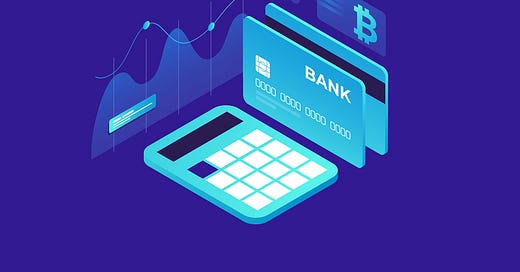Why Traditional Banks Are Embracing Blockchain Technology
The Benefits of Blockchain for Banking, from Lower Costs to Increased Transparency
Blockchain technology has been around for over a decade, and in that time, it has gone from a niche technology used only by a few enthusiasts to a mainstream tool used by businesses and organizations around the world. One industry that has been particularly quick to adopt blockchain technology is the banking sector. In this post, we'll explore why traditional banks are adopting blockchain technology and the benefits it offers.
Increased Security
One of the primary reasons why traditional banks are adopting blockchain technology is because of the increased security it provides. Blockchain technology allows for transactions to be recorded in a tamper-proof, decentralized ledger, making it virtually impossible for anyone to alter or manipulate the data. This reduces the risk of fraud, hacking, and other types of cyber attacks.
Improved Efficiency
Another benefit of blockchain technology is the improved efficiency it provides. Traditional banking systems often require multiple intermediaries to process a single transaction, which can be slow and costly. With blockchain technology, transactions can be processed quickly and efficiently, reducing the need for intermediaries and streamlining the entire process.
Lower Costs
In addition to improved efficiency, blockchain technology can also lead to lower costs for traditional banks. By eliminating the need for intermediaries and reducing the risk of fraud, banks can save money on transaction fees and other costs associated with traditional banking systems.
Increased Transparency
Another benefit of blockchain technology is the increased transparency it provides. Because blockchain transactions are recorded on a public ledger, anyone can view them, providing complete transparency and accountability. This can help to build trust between banks and their customers, as well as provide regulators with greater visibility into banking activities.
Examples of Banks Adopting Blockchain Technology
JPMorgan Chase: JPMorgan Chase has developed its own blockchain platform, Quorum, which it uses to facilitate secure and efficient transactions.
Santander: Santander has launched a blockchain-based payment platform, One Pay FX, which allows for quick and low-cost international payments.
HSBC: HSBC has used blockchain technology to facilitate a successful trade finance transaction, reducing the time and cost associated with traditional trade finance processes.
Deutsche Bank: Deutsche Bank has explored the use of blockchain technology in various areas, including payments, trade finance, and securities settlement.
In conclusion, traditional banks are adopting blockchain technology for a variety of reasons, including increased security, improved efficiency, lower costs, and increased transparency. As the benefits of blockchain technology become more widely recognized, it's likely that more banks will follow suit and begin to explore its use in various areas of their operations.




